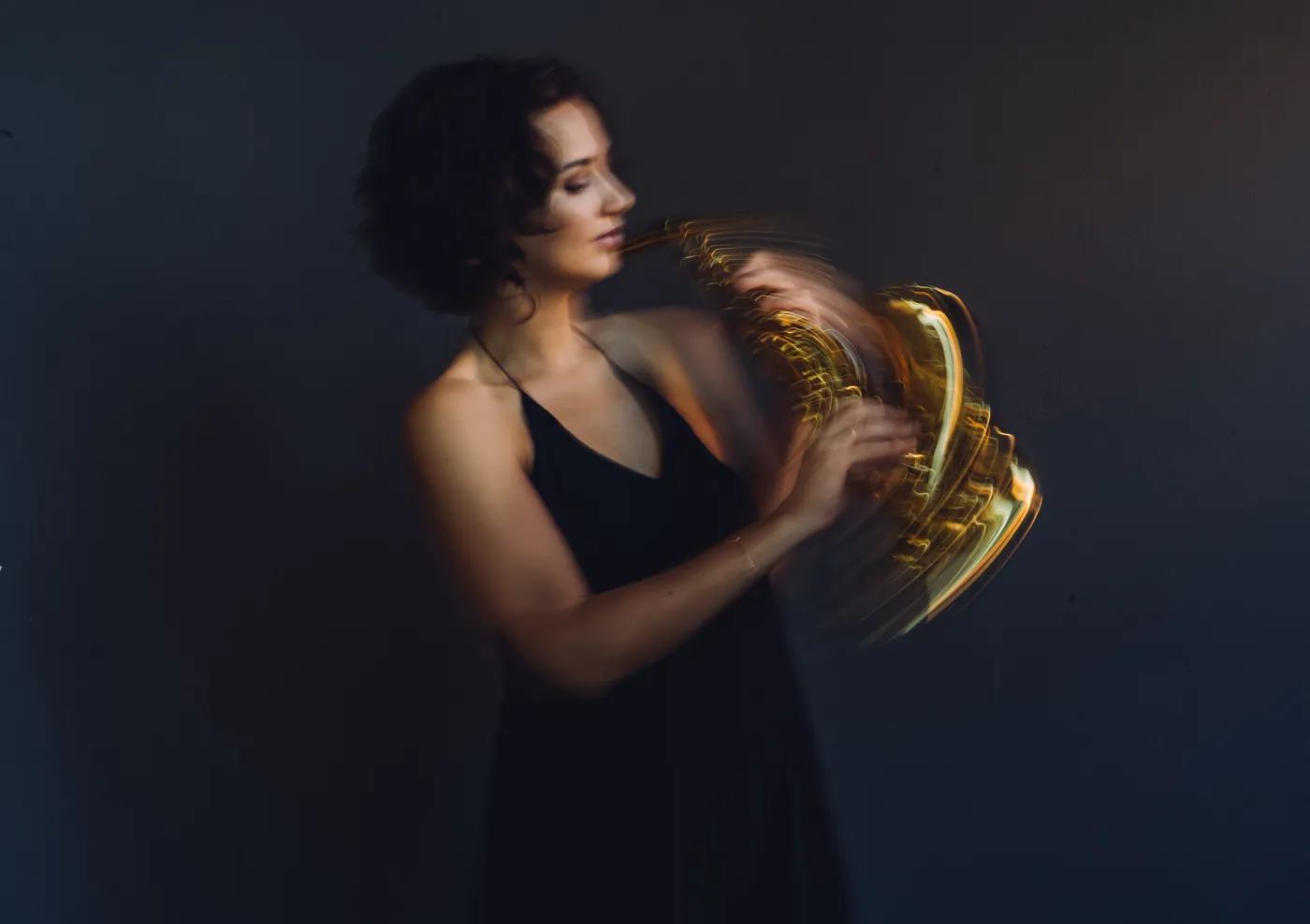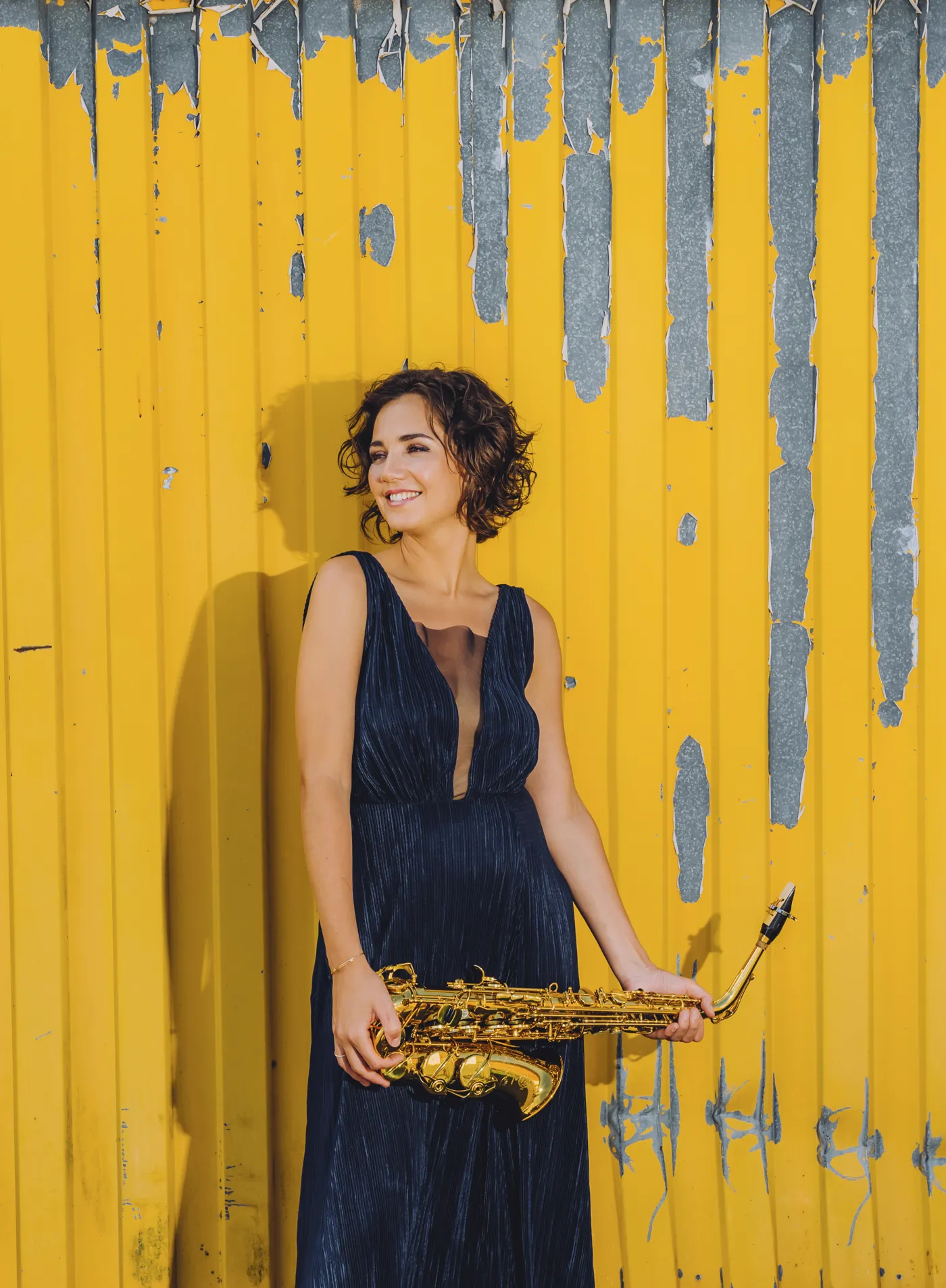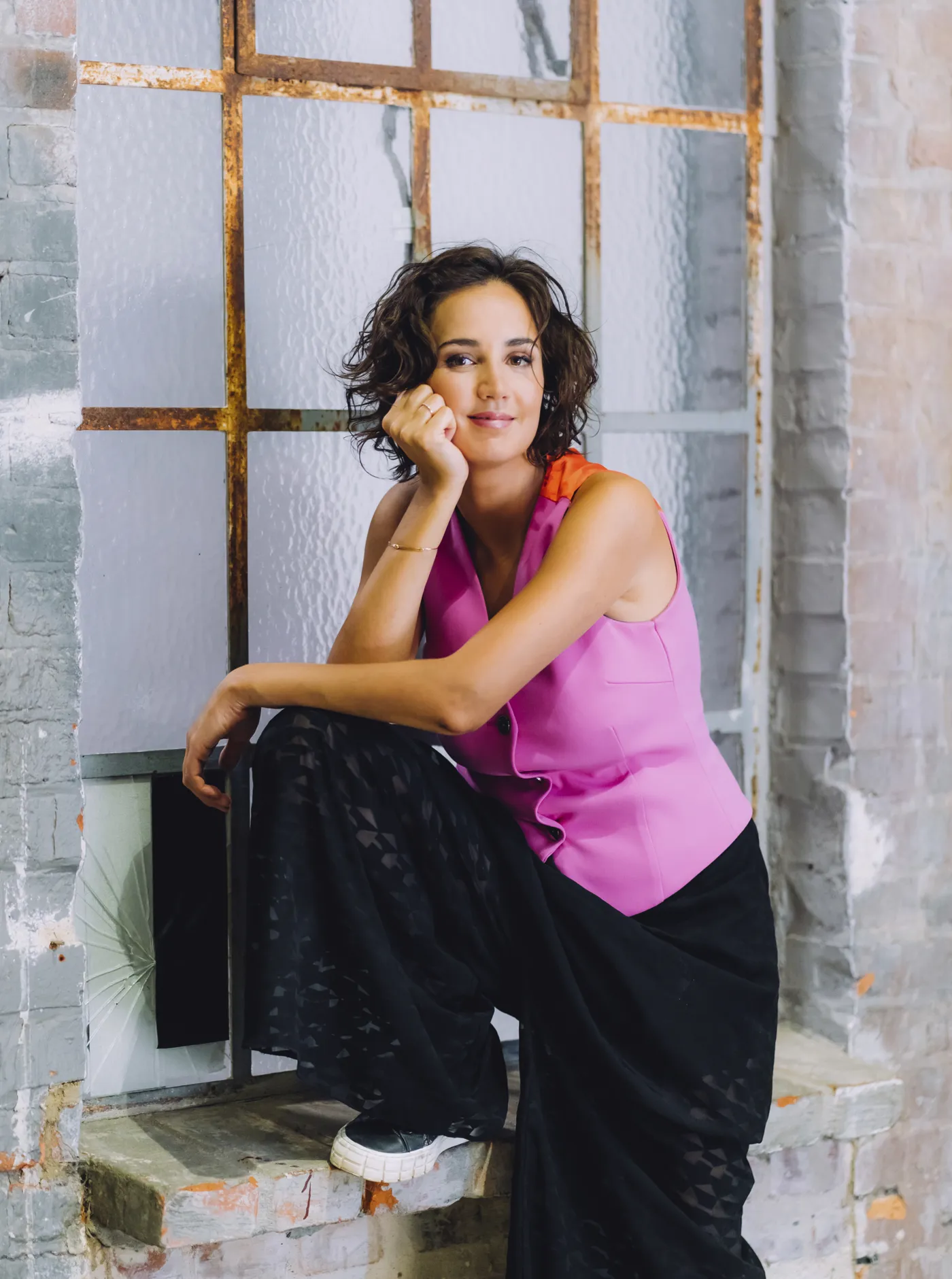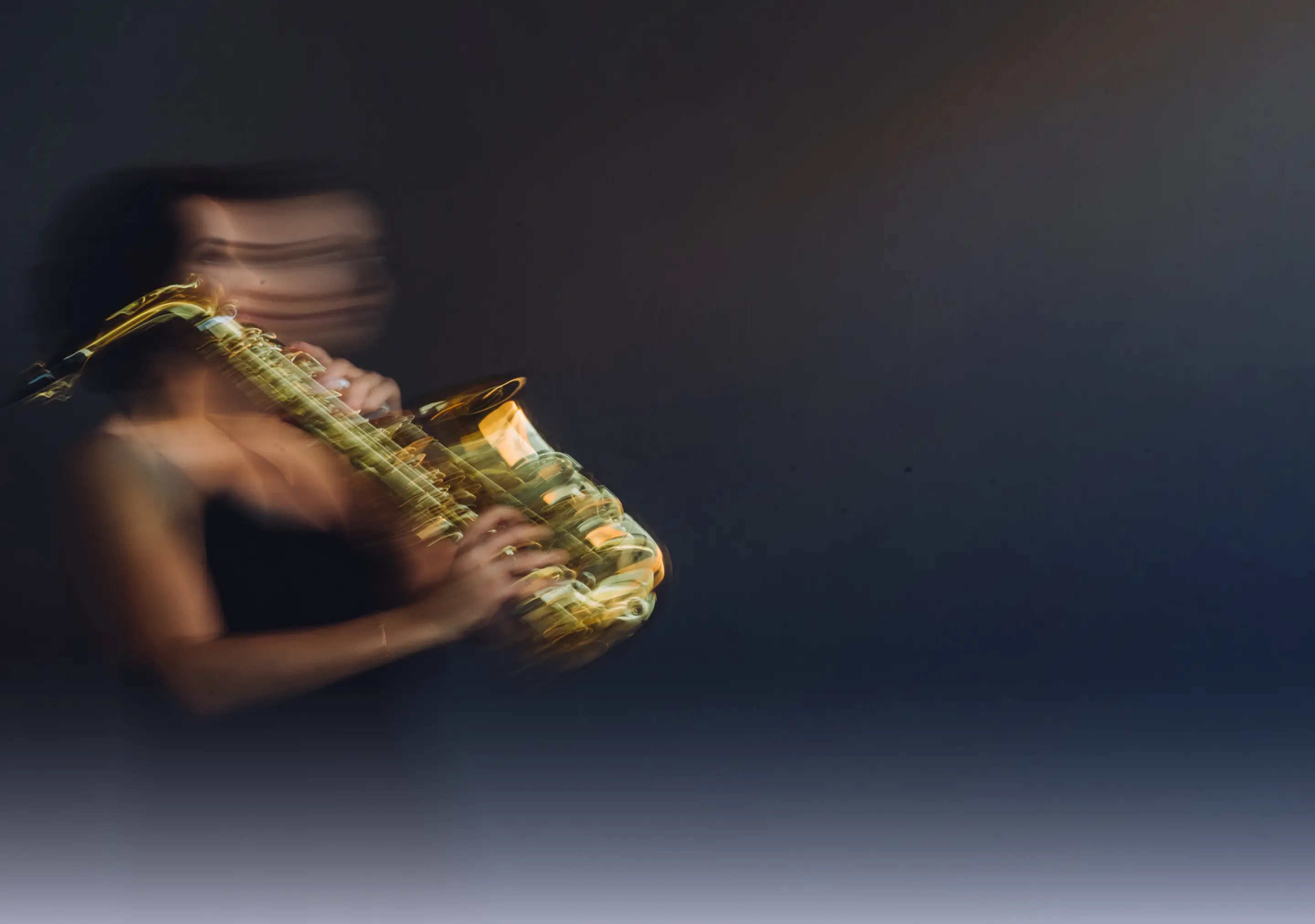
MEDIA
DISCOGRAPHY
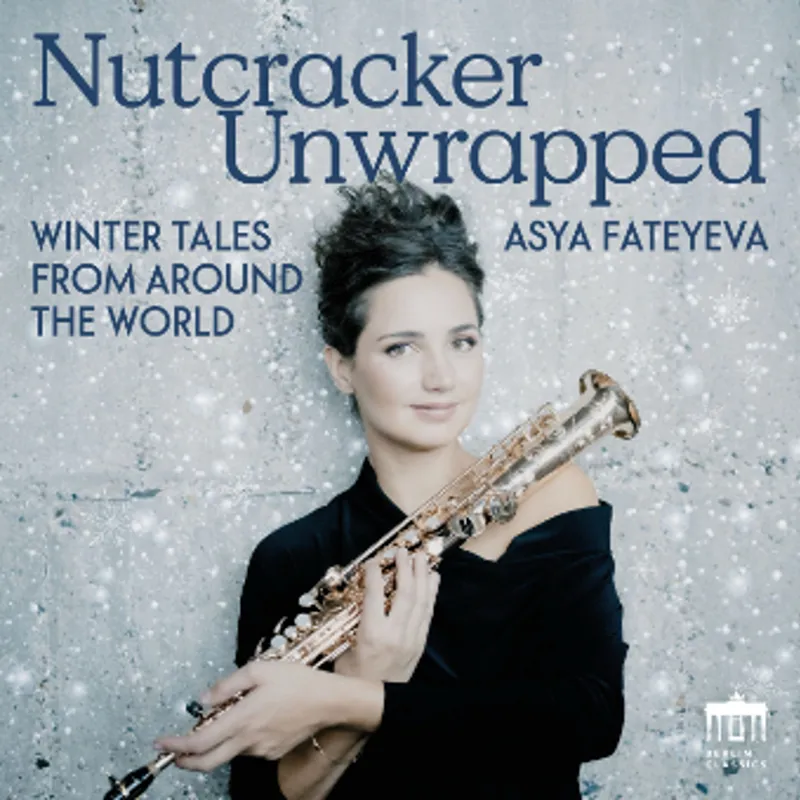
Winter Tales from around the World
Die Deutsche Staatsphilharmonie Rheinland-Pfalz, Vilmantas Kaliunas
Niniwe Vocal Art
Thor-Harald Johnson - Lute
Susanne Paul - Cello
Bodek Janke - Percussion
The new album "Nutcracker Unwrapped" by saxophonist Asya Fateyeva tells the stories of winter and the Christmas season in a brand-new version of Tchaikovsky’s classic "The Nutcracker," arranged by composer Wolf Kerschek. This piece for saxophone and orchestra, featuring Fateyeva accompanied by the Staatsphilharmonie Rheinland-Pfalz, is complemented by further Christmas classics for saxophone and vocal ensemble, recorded together with Niniwe Vocal Art. The album includes works such as: Carol of the Bells, Corpus Christi Carol, Have Yourself a Merry Little Christmas, and Rosu Dejte.
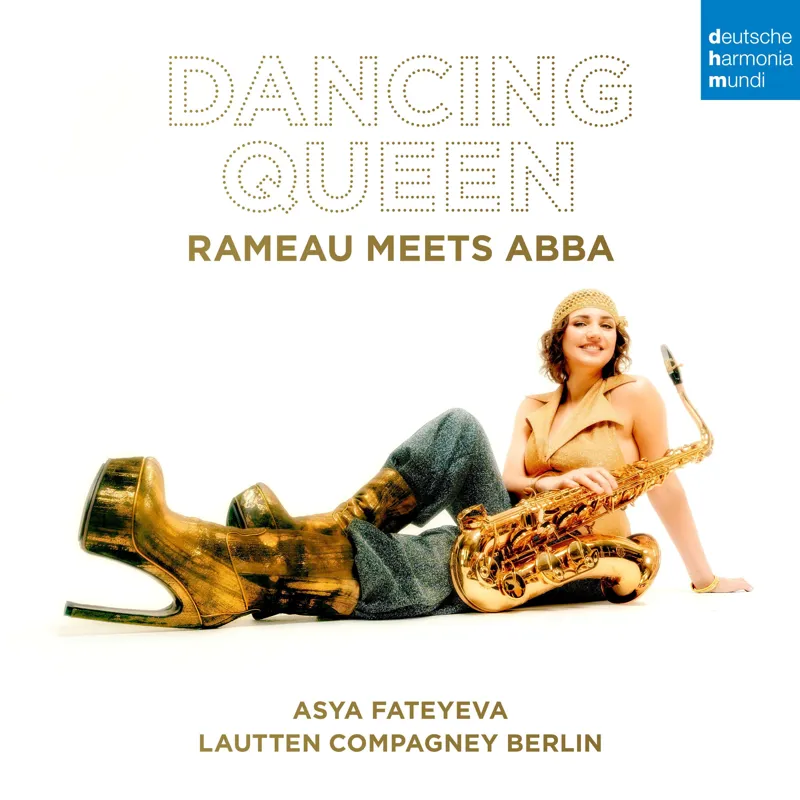
Rameau meets ABBA
Lautten Compagney Berlin & Asya Fateyeva
A surprising symbiosis: The Lautten Compagney Berlin, together with saxophonist Asya Fateyeva, combines French Baroque music and ABBA world hits in a fascinating way. The award-winning ensemble is known for its innovative, cross-genre projects, where, for example, Purcell meets the Beatles. For this program, arranger Bo Wiget has artfully adapted ABBA hits for Baroque ensemble and saxophone, transferring the vocal lines to the saxophone. The classical saxophone adds a new tone color and also enriches the works of Rameau—especially when Rameau and ABBA merge on the album.

Asya Fateyeva & Saarländisches Staatsorchester
For "To the Muse," Asya Fateyeva has reinterpreted French works by Claude Debussy, Paule Maurice, Henri Tomasi, Bertrand Plé, and the medieval Troubadours. The theme of longing runs through the entire album, and Fateyeva and her fellow musicians use this material as inspiration for free arrangements of the pieces in new orchestrations.
Fateyeva is joined by Matthias Loibner (hurdy-gurdy), Bo Wiget (cello), Emil Kuyumcuyan (vibraphone, darbuka), and the Saarland State Orchestra under Sébastien Rouland. Another facet of sound is shown by Fateyeva in the "Venetian Choral Night": here, together with the NDR Vocal Ensemble, she uses the saxophone in polyphonic vocal works.

Asya Fateyeva & lautten compagney & Wolfgang Katschner
Songs by Henry Purcell and The Beatles
This programme takes Asya Fateyeva and the lautten compagney on an exhilarating journey through three centuries of resonant musical history.
Henry Purcell was the most renowned English composer of the Baroque era. Blending catchy melodies with grooving rhythms, his music was the pop of London circa 1690. The Beatles released their first single in 1962 and creatively shaped the modern pop culture of the 20th century.
With their characteristic sound of historical instruments, lautten compagney creates a new auditory experience, making the boundaries between styles and eras permeable. For the first time, they collaborate with the young saxophonist, making traditional classifications such as Serious Music or Pop Music irrelevant here.

Asya Fateyeva
Works by Erwin Schulhoff, Adolf Busch, Anton Webern, Ernst Krenek, Paul Hindemith, Kurt Weill
Saxophonist Asya Fateyeva revisits the golden era of her instrument: the 1920s when it was seen as the voice of modern salon music. Named after Ernst Krenek's jazz opera "Jonny spielt auf", the album is a blend of danceable urban rhythms, cultural-political ostracism, and musical pioneering spirit. "With Adolf Busch, Paul Hindemith, and Anton Webern, the saxophone appears as a medium, a sound means to an end. Erwin Schulhoff, Kurt Weill, and Ernst Krenek particularly use it as an expression of the zeitgeist in the 1920s," says Fateyeva.
Her chamber music partners include Emma Yoon and Florian Donderer on violin, Yuko Hara on viola, cellist Tanja Tetzlaff, Stepan Simonian on piano, and Shirley Brill on clarinet.

Asya Fateyeva & Württembergisches Kammerorchester Heilbronn & Ruben Gazarian
Works by Sergei Prokofiev, Jules Massenet, Léo Delibes
On "Carneval," Asya Fateyeva delves into carnival's dramas, characters, and the surprising human entanglements herein, with the saxophone being exceptionally well-suited for this: "The title 'Carneval' describes the spirit of the saxophone. It likes to dress up, experiment, explore different styles, and slip into the roles of other instruments."
Like in an opera staging, Asya has cast soprano, alto, and tenor saxophones as characters, demonstrating how closely her instrument can mirror the human voice. "Massenet, Bizet, and many other composers used the saxophone to achieve a special, vocal-like timbre," she says.

Asya Fateyeva
Works by Johann Sebastian Bach and Heitor Villa-Lobos
On the album "Bachiana" featuring works by Johann Sebastian Bach and Heitor Villa-Lobos, Asya Fateyeva showcases not only her virtuosity as a saxophonist but also her talent as an arranger. She is splendidly complemented by the Württemberg Chamber Orchestra Heilbronn under principal conductor Ruben Gazarian. "Ever since I was a child, the music of Johann Sebastian Bach has greatly inspired me, his music was always there. I think most musicians feel similarly; Bach's universal language knows no boundaries, and when one encounters his music, there's a sense of touching something infinite," reflects Asya Fateyeva.

Works by Fernande Decruck, William Albright, Jean-Denis Michat, and Jacques Ibert
From the first, yearningly caressing notes of Fernande Decruck's sonata, the young saxophonist Asya Fateyeva captivates us: In GENUIN's Primavera Edition, which continually presents us with outstanding soloists, all of them winners of the German Music Competition, she breaks all boundaries: With Jacques Ibert's carefree Saxophone Concerto, the musician soars with such ease, as if its technical challenges were non-existent. And in Jean-Denis Michat's Concerto, her saxophone allures with an Arabic lilt – in an equally breathtakingly virtuosic manner! Captivating discoveries, brilliantly performed!









